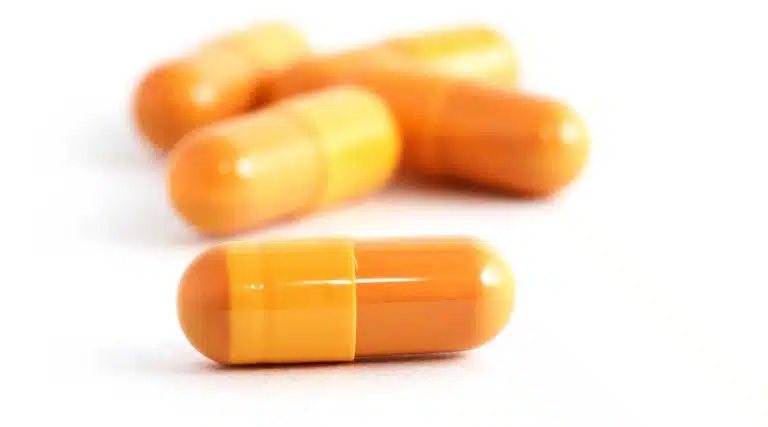Dexedrine Abuse & Addiction | Side Effects, Withdrawal, & Treatment Options

Dextroamphetamine, brand name Dexedrine, is one of several prescription drugs used to treat attention deficit hyperactivity disorder or ADHD. It is also used to treat narcolepsy, a chronic sleep disorder.
Like other ADHD medications, such as Ritalin and Adderall, Dexedrine has a high potential for drug abuse. Dexedrine can be abused in many different ways and has many different side effects.
How Dexedrine Works
Dexedrine is an amphetamine. Amphetamines affect the central nervous system, which is responsible for many tasks and functions. In typical brain activity, the central nervous system is a complex network of chemicals and signals.
Dopamine is one such chemical that affects attention span, motivation, and pleasure. Since ADHD is often linked to unusual dopamine amounts in the brain, Dexedrine is thought to control this.
Amphetamines are linked to norepinephrine. Norepinephrine affects the cardiovascular system by increasing blood pressure and heart rate. Dexedrine may combat unusual dopamine levels by increasing amounts of norepinephrine, a different chemical.
Dexedrine Vs. Ritalin Vs. Adderall
Dexedrine, Ritalin (generic name methylphenidate), and Adderall are three popular stimulant medications that treat ADHD. However, they treat ADHD in different ways.
Dexedrine and Adderall are amphetamines, while Ritalin is a general stimulant drug. All three are central nervous system stimulants. Ritalin affects dopamine neurotransmitters, while Dexedrine and Adderall are thought to control norepinephrine amounts.
All three medications may have different side effects, especially when misused.
Side Effects Of Dexedrine
Even under proper, short-term drug use, Dexedrine may have a number of side effects.
These side effects include:
- dry mouth
- headache
- constipation
- loss of appetite
- weight loss
- mood swings
- feeling lethargic
- hallucinations
- delusions
If you take Dexedrine frequently or for long periods of time, you could develop a tolerance. This may lead to abuse because you’ll have to increase the dosage to achieve the same effects.
Dexedrine Addiction
Dexedrine is a Schedule II controlled substance, which means that it has a high potential for abuse. Schedule II substances include other amphetamines and prescription stimulants.
Amphetamines increase brain activity. To combat this, people may turn to depressants, types of drugs that decrease brain activity. This may lead to a cycle of substance use and abuse, where one type of drug must be taken to fight another.
Additionally, Dexedrine may be abused simply by not following the recommended dosage, or by taking the drug without a prescription. Long-term abuse may lead to Dexedrine addiction.
Side effects of Dexedrine addiction may include:
- insomnia
- irritability
- changes in personality
- psychosis
Many of these symptoms can affect both your physical and mental health.
Learn more about Snorting Dexedrine & Dexedrine Abuse
Withdrawal Symptoms
A person may experience withdrawal symptoms if they go without Dexedrine for a long period of time. The brain will become used to having dextroamphetamine in the body and adjust accordingly. Once the substance is gone, the brain will react.
Withdrawal symptoms from Dexedrine may include:
- depression
- confusion
- increased aggression
- seizures
Abuse of Dexedrine can also have even more severe health effects.
Learn more about Dextroamphetamine Withdrawal
Dexedrine Overdose
People who struggle with Dexedrine addiction are at higher risk for overdose. Amphetamine tolerance is common in people who struggle with drug abuse. This causes a person to take Dexedrine in higher amounts to get the same effects.
Unfortunately, this puts you at higher risk for Dexedrine overdose. Dexedrine overdose may cause serious symptoms even in less extreme amounts.
Signs of Dexedrine overdose may include:
- confusion
- hallucinations
- panic states
- hypertension
- vomiting
Extreme Dexedrine overdose can be deadly, and may include signs like convulsions or coma.
If you see any of these signs, please call for help right away.
Treatment Options For Dexedrine Abuse
Like many other forms of substance use, Dexedrine abuse is treatable. Several forms of treatment exist, and you may find any or all of these options effective.
Detox Programs
Many addiction treatment centers offer a medical detox program. This service will support you during withdrawal as you purge the drug from your system. Generally, medications are given to help the process along.
Behavioral Therapy
Cognitive-behavioral therapy can be effective in fighting drug abuse. This type of therapy sets up coping skills for when you feel like you may relapse. Additionally, it attempts to find ways to motivate yourself on your road to recovery.
Inpatient Treatment
The road to recovery from substance abuse can be long and tough. A stay at an inpatient addiction treatment center can help establish healthy habits in a safe environment. Many health centers offer step-by-step treatment programs, along with therapy services to help you get back on track.
For more information on our treatment services for stimulant addiction, including Dexedrine, please reach out to us today.
Written by Ark Behavioral Health Editorial Team
©2024 Ark National Holdings, LLC. | All Rights Reserved.
This page does not provide medical advice.
Food and Drug Administration - Adderall - FDA
Food and Drug Administration - Dexedrine - FDA
U.S. Department of Justice: Drug Enforcement Administration - Controlled Substance Schedules


Questions About Treatment?
Ark Behavioral Health offers 100% confidential substance abuse assessment and treatment placement tailored to your individual needs. Achieve long-term recovery.
100% confidential. We respect your privacy.
Prefer Texting?
Our friendly support team is here to chat 24/7. Opt out any time.







 Learn More
Learn More








